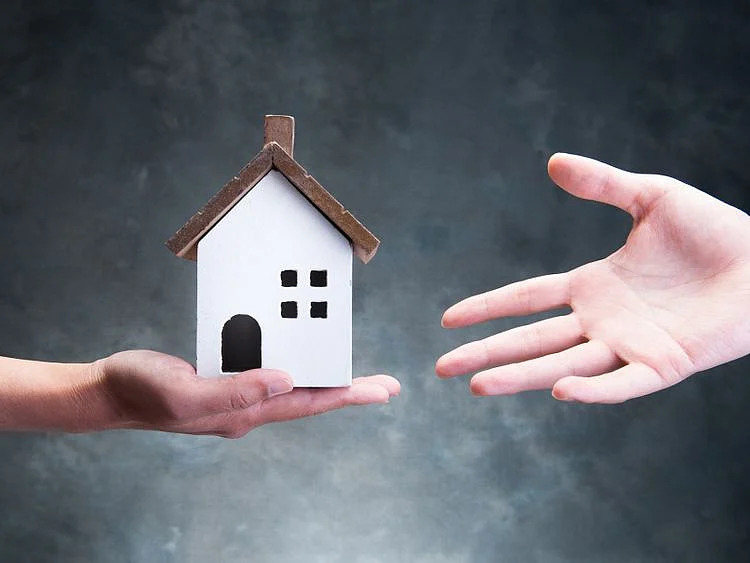Are you ‘house rich, cash poor’? Prevent this by choosing a budget-friendly home loan
While many homeowners are ‘house-rich’, many of these same homeowners are also ‘cash-poor’

Dubai: Being ‘house poor’ is often interchangeably referred to as being ‘house rich, cash poor’. While this phrase might sound like an oxymoron, it’s actually fairly common among new home buyers.
But how can someone be rich and poor at the same time? Well, it all comes down to how much you have tied up in your home, compared with how much you have in your pocket.
What does it mean to be ‘house-rich, cash-poor’?
Being house-rich and cash-poor means you have more equity locked into the value of your home than you have in liquid assets. To understand this better, consider this.
Let’s say your homeownership expenses take up over 40 per cent of your income, which means that your ‘debt-to-income ratio’ is higher than 40 per cent. (As a general rule, it’s best to not spend more than 30 per cent of your income on living expenses.)
Additionally, if your home equity makes up more than 80 per cent of your total net worth, meaning you don’t have any other major investment, and you have less than six months in cash reserves to cover your total monthly expenses if the need arises, it means you’re ‘house rich’, but ‘cash poor’.
What’s wrong with being ‘house-rich, cash-poor’?
“The problem with being ‘house-poor’ is that even the slightest financial hiccup in your life can affect your financial health and affect your quality of life,” explained Dubai-based investment planner Mohammad Shaan.
“For instance, if you run into large medical bills or a costly home repair, you may not have the money to pay for it. Beyond that, being house-rich and cash-poor can lead to a downturn in your quality of life.”
So while many homeowners are house-rich, meaning they have solid equity in their home, many of these same homeowners are also cash-poor, lacking the reserves necessary to see them through emergency expenses.
Focus on down payment, let loans handle the rest?
“First-time home buyers are saving up lots of money for the down payment – usually between 5 per cent and 20 per cent, hoping that the rest of the financial burden will be eased with small monthly instalments,” said Prakash Bhat, a real estate and mortgage consultant working out of Abu Dhabi.
“In doing so, they often have barely any money left for emergencies. Another instance is if you take all the money from the sale of your current home and put it all down on buying the next one. That again leaves you with no financial wiggle room and at risk of being ‘house-rich, cash-poor’.”
So simply put, because you’re ‘house rich’ doesn’t necessarily mean your wallet is full. Someone who is ‘house rich, cash poor’ may spend most of their income on homeownership expenses like loan instalments, insurance, routine repairs etc., with little income left for other living expenses.
How to avoid being cash-poor when buying a home
The most effective fix against becoming ‘house-poor’ is getting a budget-friendly home loan. So it’s essentially to determine the size of the loan most suited to your budget and income. Financial experts generally recommend the loan stay below three times of your annual salary.
“If your household’s gross annual income is Dh160,000, you shouldn’t take out a home loan that’s more than Dh480,000 (three times of your annual income). Next, you need to understand how much you’re comfortable spending on housing expenses every month,” added Shaan.
“The general advice here is to keep your monthly mortgage payment under 30 per cent of your monthly income. For example, if your monthly salary is Dh6,000, you should aim for a home loan payment of Dh1,800 or less.”
Shop around for the best mortgage rate before deciding
Both Shaan and Bhat reiterated that in order to prevent being cash-poor when buying a house, you should see to it that you shop around for the best mortgage rate when you’re ready to buy. A small difference in the interest rate can shave off hundreds of dirhams of your mortgage payments. “For starters, have a clear grip of your finances before you buy a home by using a mortgage calculator, entering your income and debts, to figure out what price you can afford on a home, added Bhat. “Speak to a lender to find out how large a home loan you qualify for, too.”
Bottom line? A home buyer should never leave themselves cash-poor
Being ‘house poor’, or ‘house rich, cash poor’ describes one who spends a large proportion of his or her total income on homeownership costs, while ending up short of cash and having trouble meeting other financial obligations. What should you do if you see yourself in this category?
Figure out what price you can afford on a home, as this will help you know what your monthly expenses would be if you had to pay for that home loan. Keep in mind that even if you qualify for a large mortgage, you don’t want to be in a position where every little expense is difficult to pay for.
Also, make sure you have at least a year of whatever your recurring monthly payments would be in reserve and shoot for a debt-to-income ratio under 30 per cent. Then set a reasonable budget for the purchase price of a home.
The bottom line is that if it's going to cost you all of your savings just to acquire the house, you may not be ready for that specific home. You may have to then think of going for a smaller home or postponing your decision of buying a home until your savings well outgrows your purchase costs.
Sign up for the Daily Briefing
Get the latest news and updates straight to your inbox
Network Links
GN StoreDownload our app
© Al Nisr Publishing LLC 2025. All rights reserved.